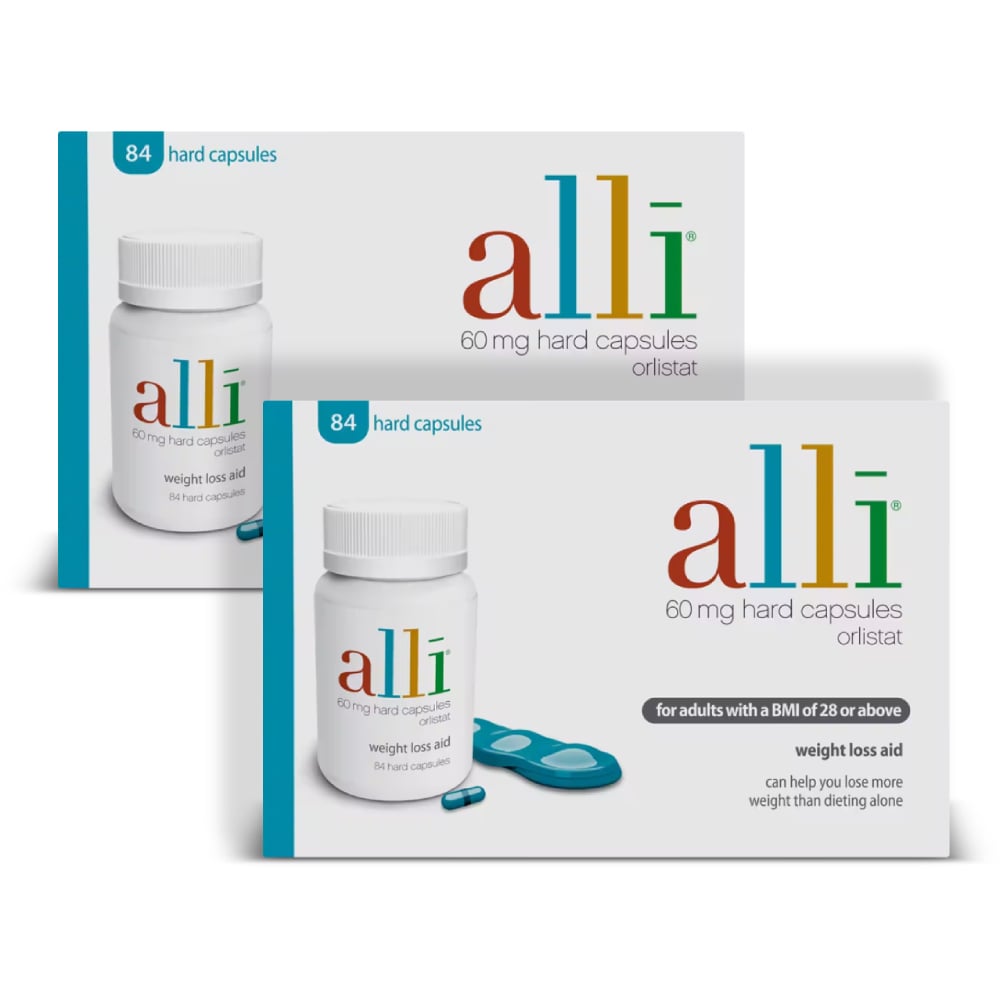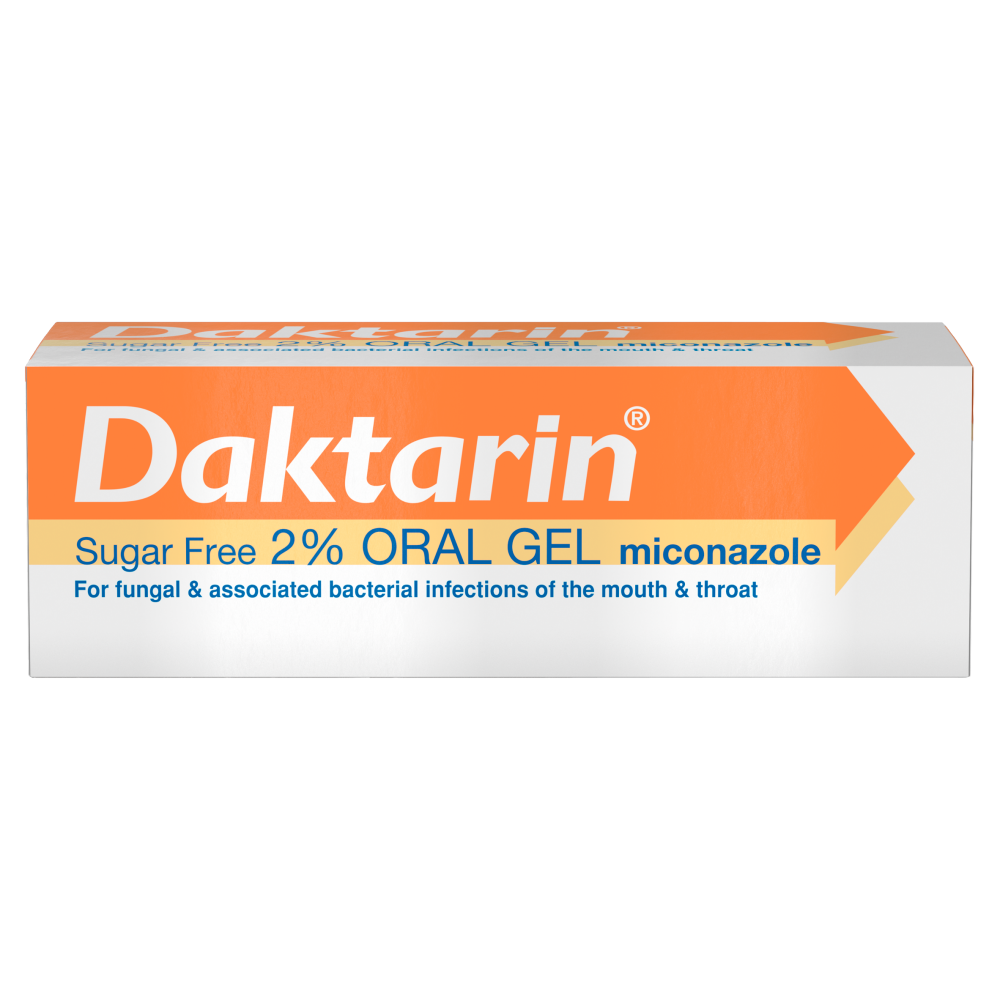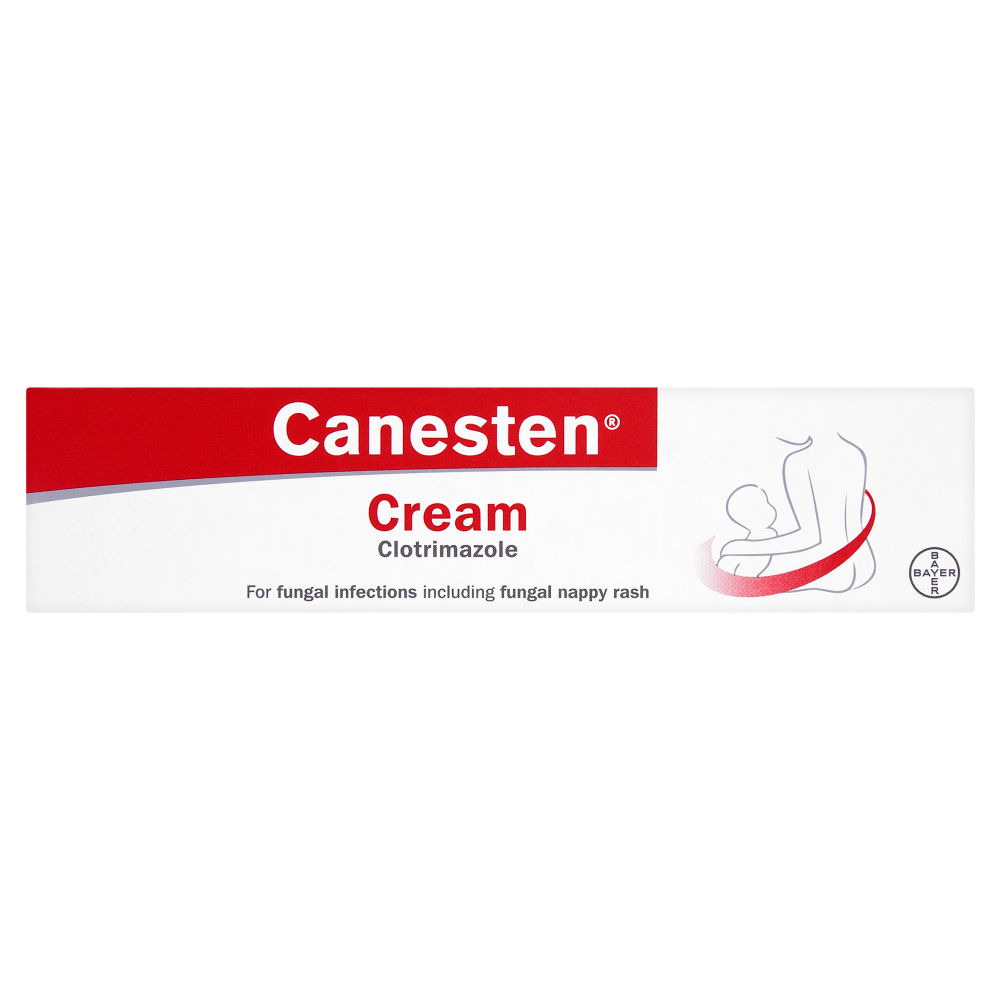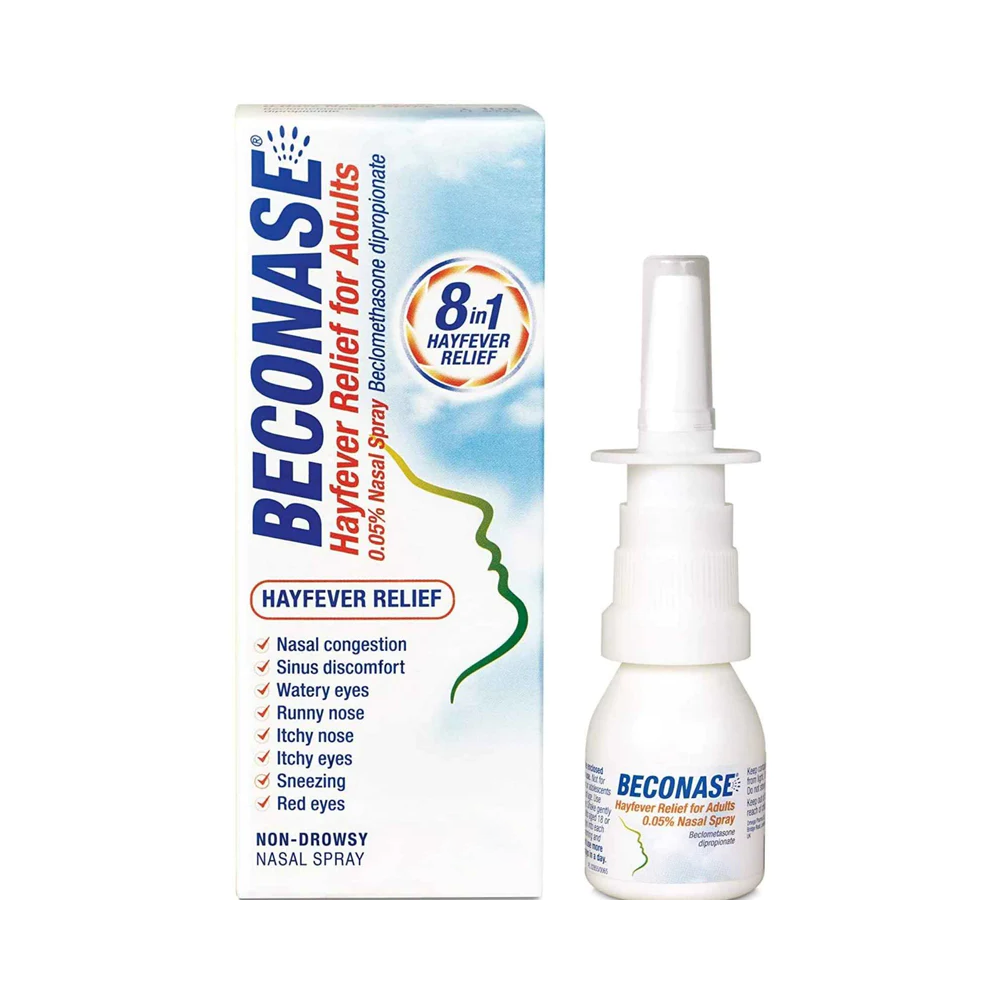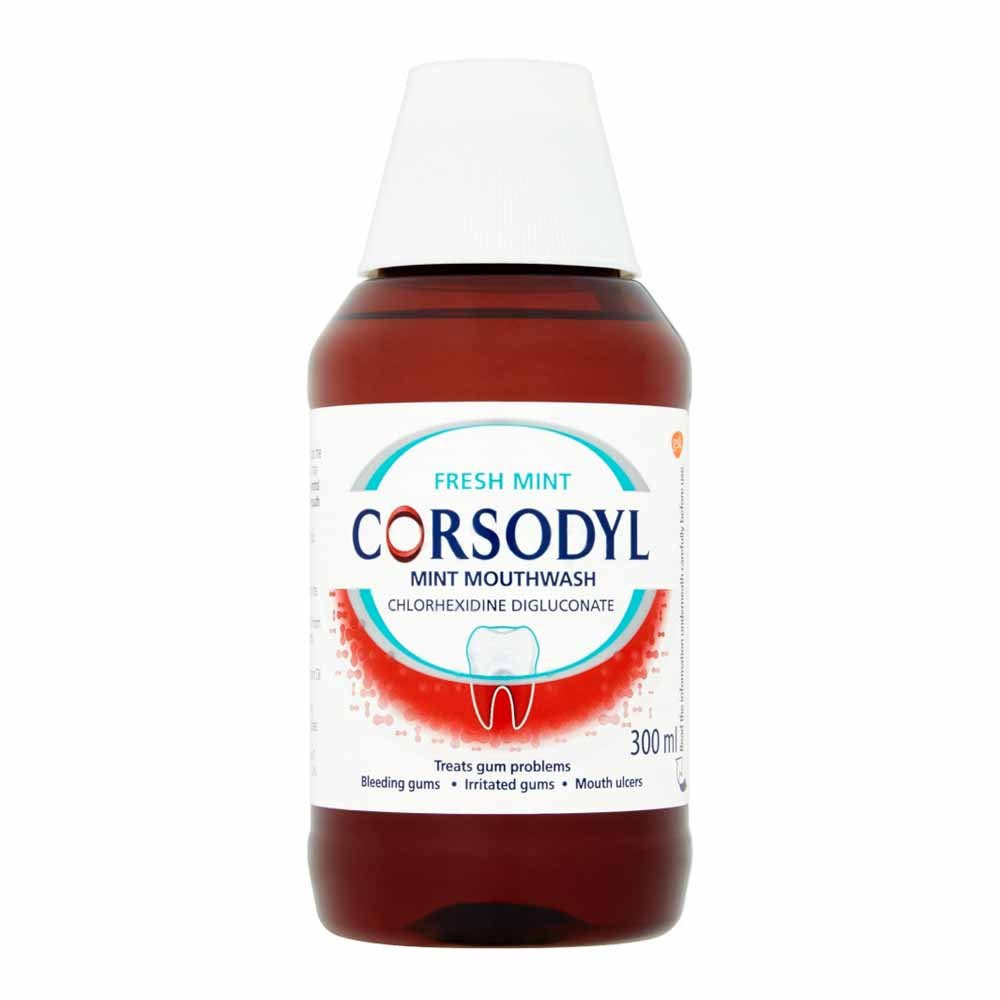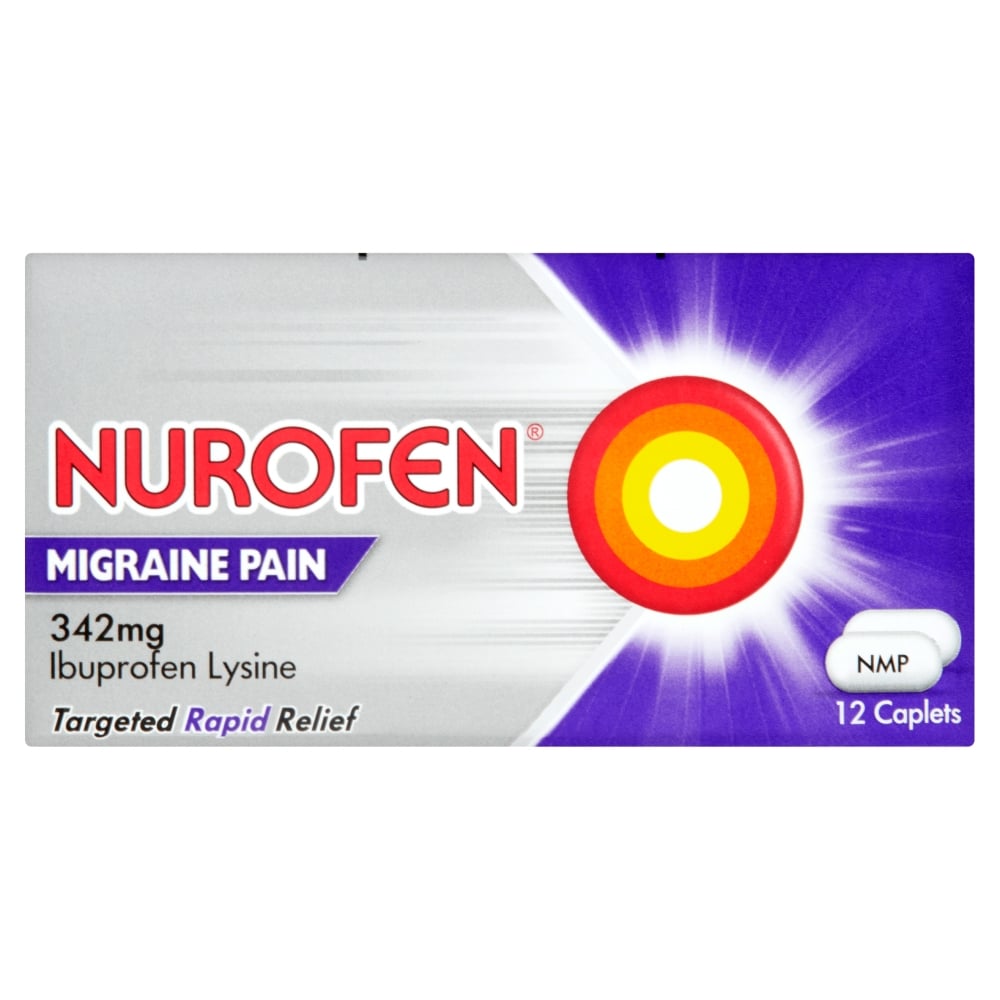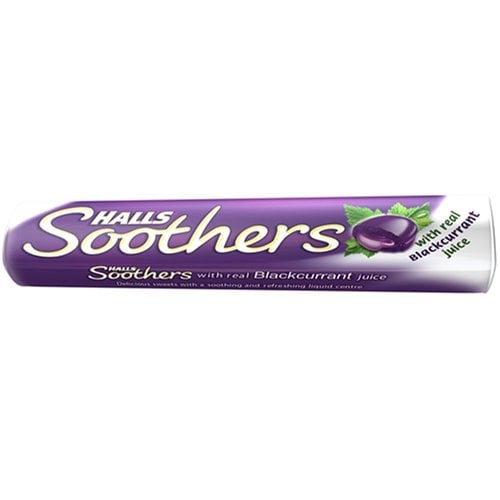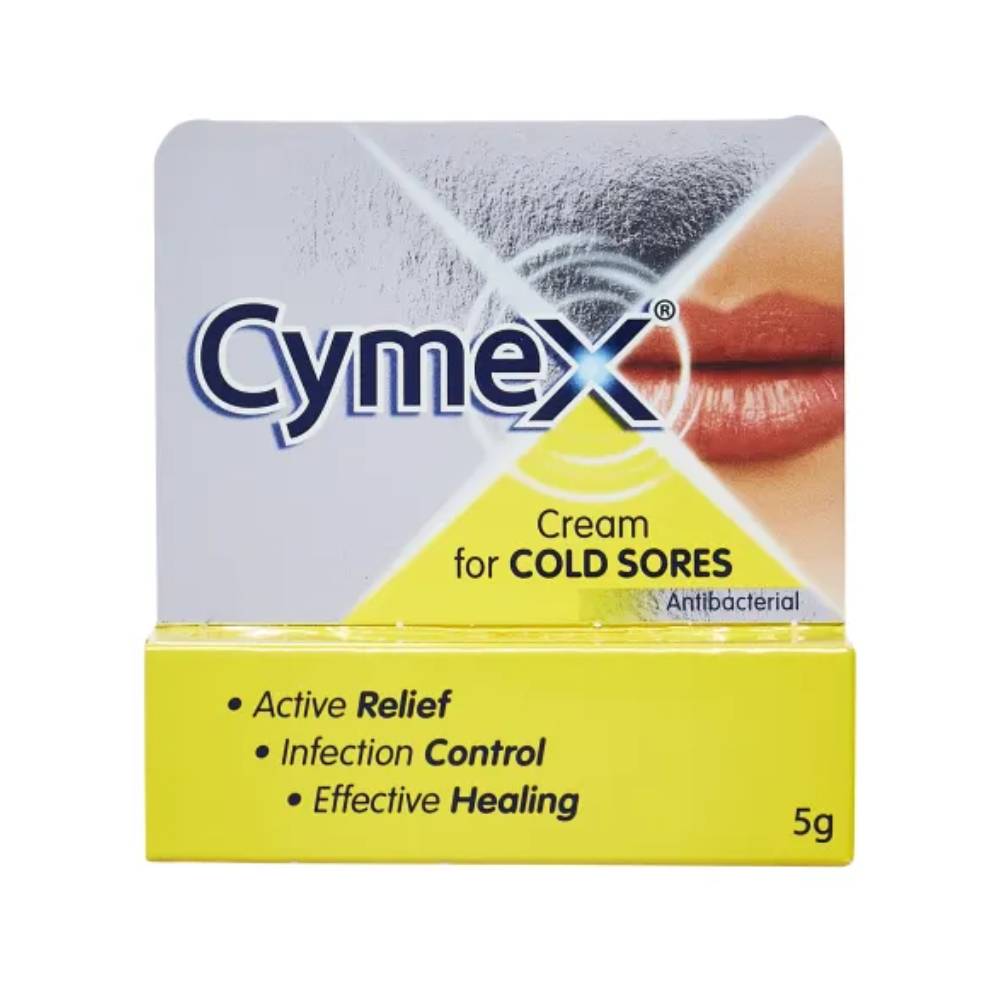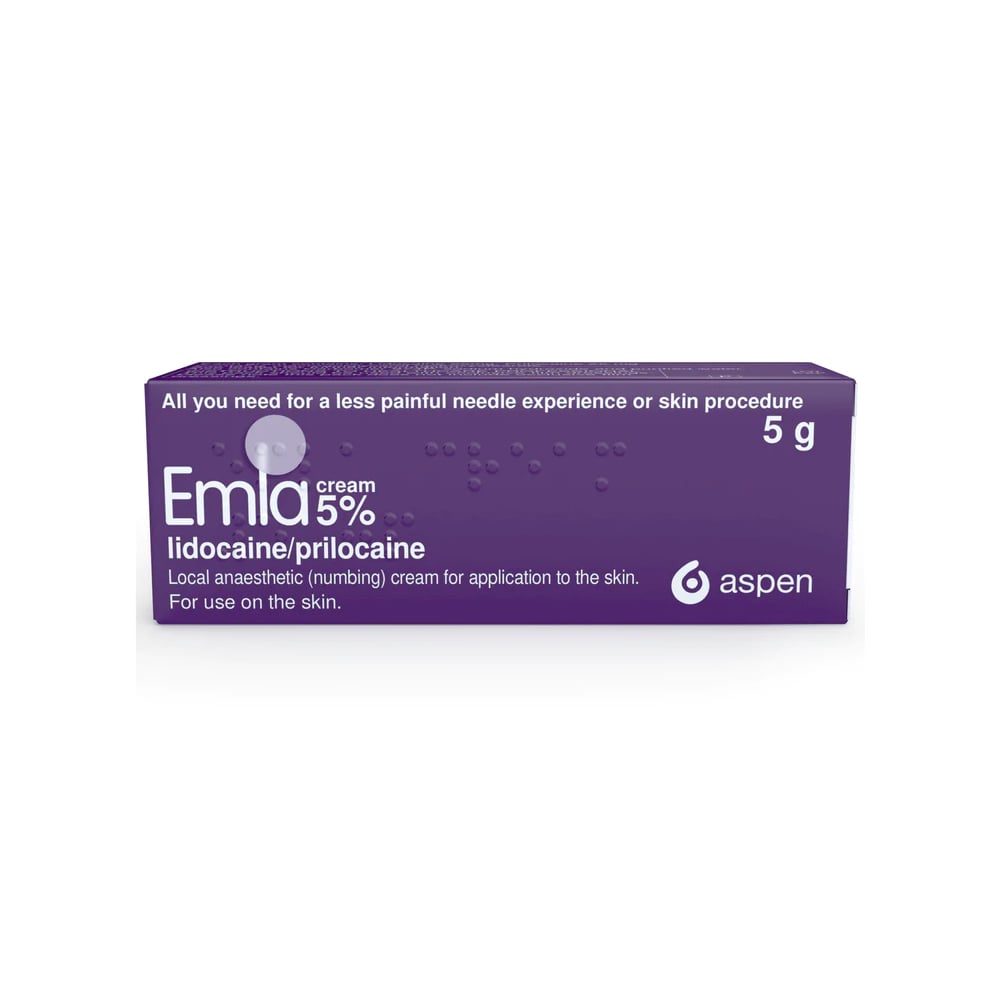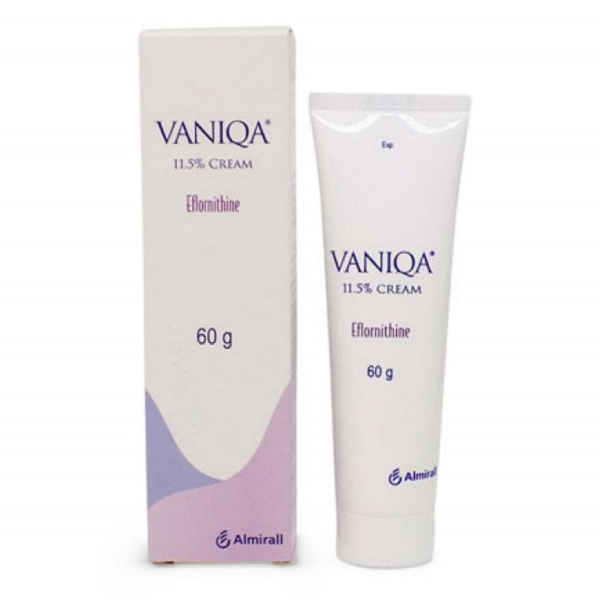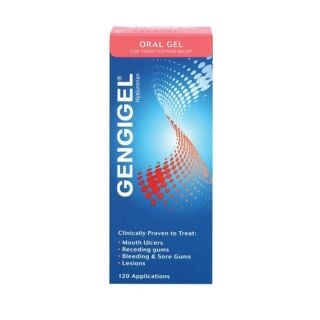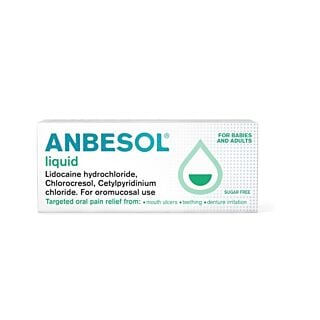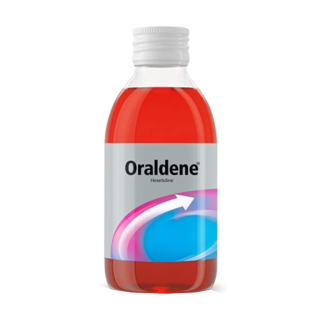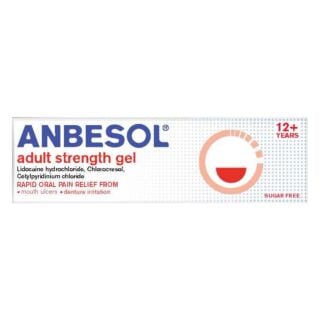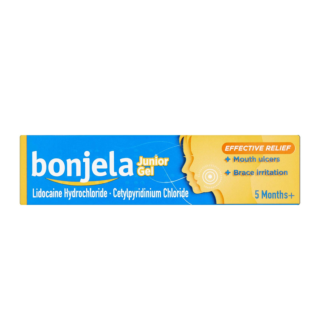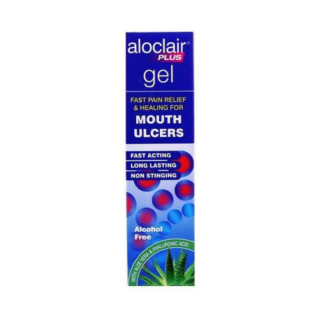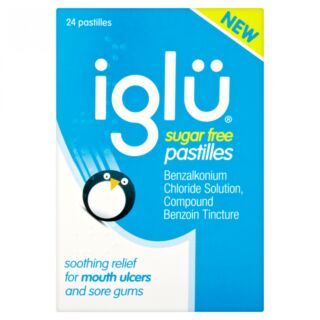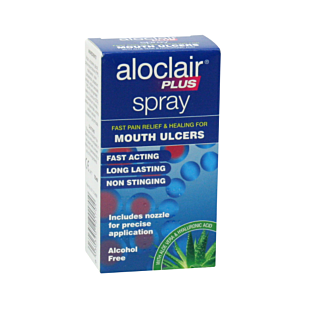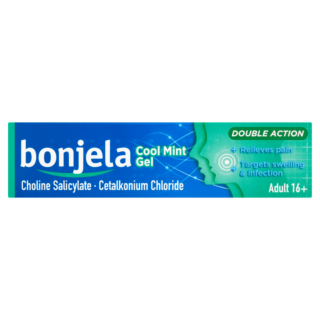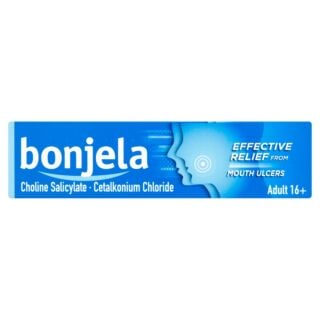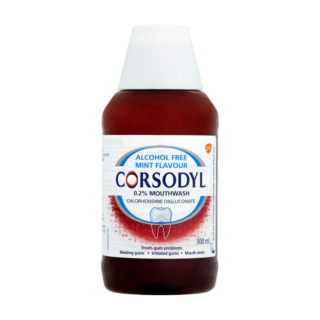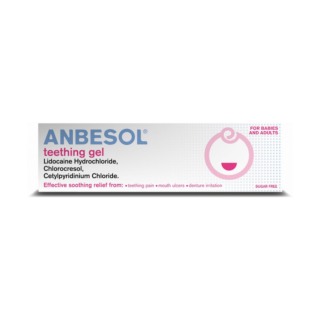Mouth Ulcers
You may struggle with recurrent mouth ulcers (also known as canker sores or aphthous ulcers) or have never had one before; some people are just predisposed to getting them.1,2 They affect up to 9% of children and up to 25% of the population overall.3 As such, they’re extremely widespread. … Read More See less
Thankfully, you can’t pass mouth ulcers on and they’re not usually a sign of anything serious.2 Though occasionally they may indicate an underlying health condition.2 They can also be quite painful.4
Unfortunately, there’s no quick fix treatment for mouth ulcers.5 But they tend to clear up on their own within a matter of weeks.5 There are things you can do, however, to speed up the healing process and reduce any pain you’re experiencing.5 So, let’s discuss what these are, what mouth ulcers might be a symptom of, and what makes mouth ulcers worse.
What are mouth ulcers?
Mouth ulcers are round or oval sores that occur on a break in the mucosa (moist tissue lining) of your mouth.2,6,7 They are often painful and can make eating, drinking and speaking uncomfortable.2,8
Typically, you first start getting mouth ulcers in childhood.8 You may go on to experience recurrent mouth ulcers which can resolve spontaneously as you get older.8 As a result, they are more common in people under the age of 40.8 They also occur more frequently in women and in white people than in black people.8
Importantly, mouth ulcers are not the same thing as cold sores (small blisters that develop on the lips or around the mouth).6 They do not develop on the skin, and they do not blister.7
What are the different types of mouth ulcers?
There are three different types of mouth ulcers:8
- Minor ulcers – less than 1 cm in diameter. These heal spontaneously in less than 14 days and account for around 85% of all mouth ulcers
- Major ulcers – usually 1–3 cm in diameter. These are hard and can last from 10 days to six weeks or even longer. They account for around 10% of all mouth ulcers
- Herpetiform aphthous ulcers – very small, grouped lesions. These can persist for seven to 10 days, are extremely painful and account for around 5% of all mouth ulcers. As many as 100 ulcers can be present which may form into larger ulcers
Mouth ulcer symptoms
Mouth ulcers appear on the:2,6
- Gum
- Cheeks
- Inner lips
- Tongue
- Gum
- Roof of the mouth
They can be white, red, yellow or grey in colour and may cause:2,6
- Swelling
- Soreness
- Pain that worsens when eating spicy, salty or sour foods
When to seek help
You should go to see a pharmacist for advice and treatment if you have a mouth ulcer.6 However, your pharmacist may recommend you see a GP or a dentist if:5,6
- Your mouth ulcer has lasted three weeks
- You keep getting mouth ulcers
- Your mouth ulcer grows bigger than usual
- Your mouth ulcer is near the back of your throat
- Your mouth ulcer bleeds or becomes more painful or red (as this could be a sign of a bacterial infection)
What causes mouth ulcers?
What causes a mouth ulcer isn’t always clear.2,4,6 However, most of the time they’re caused by damage to the mucosa in your mouth, for example if you: 2,4,6
- Accidentally bite the inside of your cheek
- Wear poorly fitting dentures
- Eat hard food
- Have a faulty filling
- Wear braces
If you have recurrent mouth ulcers, they may be triggered by:2,4,6
- Stress and anxiety
- Hormonal changes during your period
- Sensitivities to certain foods, such as chocolate, spicy foods, coffee, nuts, strawberries, cheese, tomatoes and wheat flour
- Using harsh toothpaste containing sodium lauryl sulphate
- Stopping smoking (when you first stop smoking, you may develop mouth ulcers)
- A diet lacking in vitamins: b-12, zinc, folate (folic acid) or iron
- Genetics (40% of people who get recurrent mouth ulcers report they run in their family)
Mouth ulcers can also sometimes be caused by certain medications or treatments, including:6
- Non-steroidal anti-inflammatory drugs (nsaids) – such as ibuprofen
- Nicorandil – sometimes used to treat angina (chest pain)
- Beta-blockers – such as propranolol, which is used to treat high blood pressure
- Chemotherapy or radiotherapy – used to treat cancer (this is known as mucositis)
What conditions can mouth ulcers indicate?
Occasionally, mouth ulcers can indicate an underlying medical condition, such as:2,4,6
- A viral infection – including the herpes simplex virus (HSV), chickenpox, and hand, foot and mouth disease
- Crohn’s disease – a chronic condition that causes inflammation of the digestive tract
- Coeliac disease – a digestive condition caused by a sensitivity to gluten
- Reactive arthritis – which causes inflammation in the body, usually as a reaction to an infection
- HIV/AIDS and lupus – which cause a weakened immune system
- Behçet’s disease – a rare condition that causes inflammation throughout the body
Occasionally, a long-lasting mouth ulcer can be a sign of mouth cancer.6 The difference between mouth ulcers and cancer is that the sores caused by mouth cancer won’t heal on their own.2,6
How to get rid of mouth ulcers
Mouth ulcers don’t always need pharmaceutical treatment, as they should clear up on their own.5,6 However, there are things you can do to speed up the healing process:5,6
- Brush your teeth with a soft toothbrush
- Drink cold drinks through a straw
- Get regular check-ups at the dentist
- Try to reduce your stress and anxiety
- Do not use chewing gum
- Avoid using toothpaste containing sodium lauryl sulphate
- Eat a healthy, balanced diet
- Avoid eating rough, crunchy food, like toast or crisps
- Avoid eating spicy, salty or acidic food
- Avoiding drinking very hot or acidic drinks, such as fruit juice
If your mouth ulcer is causing severe pain, is not resolving or may be infected, a pharmacist or GP may recommend:5,6,9
- Antimicrobial mouthwash (chlorhexidine 0.2%)
- Steroid tablets (hydrocortisone 2.5mg buccal tablets) or mouth spray
- Anaesthetic gel
- Corticosteroid lozenges
- A salt (saline) mouthwash
- Painkilling mouth spray (benzydamine 0.15% oromucosal spray)
Sources
- https://cks.nice.org.uk/topics/aphthous-ulcer/
- https://my.clevelandclinic.org/health/diseases/21766-mouth-ulcer
- https://cks.nice.org.uk/topics/aphthous-ulcer/background-information/prevalence/
- https://www.mayoclinic.org/diseases-conditions/canker-sore/symptoms-causes/syc-20370615
- https://www.nhs.uk/conditions/mouth-ulcers/
- https://www.nhsinform.scot/illnesses-and-conditions/mouth/mouth-ulcer/
- https://www.royalberkshire.nhs.uk/media/jntjvkfz/mouth-ulcers_may24.pdf
- https://cks.nice.org.uk/topics/aphthous-ulcer/background-information/definition/
- https://www.wmic.wales.nhs.uk/wp-content/uploads/2023/07/CAS-PIL-Mouth-Ulcers-v3-20.07.23.pdf

Free delivery when you spend over £39

100% discreet delivery for every item ordered

Fully regulated UK pharmacy
Are mouth ulcers contagious?
Mouth ulcers aren’t contagious, and there is no person-to-person spread.
There are many factors why they develop, like stress, biting your cheek, a change in hormones, and eating hot food to name a few.
How long do mouth ulcers last for?
Mouth ulcers usually go away by themselves after a week or so, so you’ll need to take care to keep from aggravating the area until then.
We’d recommend avoiding spicy, rough, or very hot or cold foods until your mouth ulcer has passed.
What is the cause of a mouth ulcer?
A mouth ulcer is usually nothing to worry about and is typically caused by accidentally biting the inside of your cheek.
It may be caused by other reasons like a viral, bacterial, or fungal infection, or even some medical conditions.
Your mouth ulcer should go away on its own in about 2 weeks, but if there is no improvement after this time, speak to your doctor as an ulcer that doesn’t heal may be a sign of mouth cancer.
What is the best treatment for a mouth ulcer?
Mouth ulcers will go away on their own, but if you’d like to speed up healing, there are treatment options available.
Why not try Bonjela?
This cooling, sugar-free gel includes choline salicylate which is a painkiller and anti-inflammatory ingredient that helps to reduce swelling and discomfort caused by mouth ulcers. It also contains the antiseptic cetalkonium chloride that prevents infection by killing bacteria.

